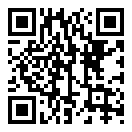Seminar – Dr Roderick McDonald – ‘”The presence of the term in Scottish Gaelic confirms that it is ancient”: When Old Norse Loans in Scottish Gaelic Might not be, and What This Means for North Atlantic Island Communities.’
The SSNS Seminar Series continues on 13 October with a talk by Dr Roderick McDonald, titled ”’The presence of the term in Scottish Gaelic confirms that it is ancient”*: When Old Norse Loans in Scottish Gaelic Might not be Old Norse Loans, and What This Means for North Atlantic Island Communities’.
* W. B. Lockwood, Faroese Bird Names, 1961, 33.
This is a free, ticketed event; please register below.
Abstract:
Scholarship in Norse loanwords in the Gaelic languages implicitly takes the word importers (the settlers and traders in the Hebrides, Scotland, the Isle of Man and Ireland, i.e. the Norse speakers) as people who came from the more prominent geographies of Iceland or Norway. Although much can be inferred from the linguistic evidence, who the actual people were, their identities and their places of origin can never be known with any degree of certainty. Moreover, loanword etymologies and their surrounding scholarship typically assume Old Norse as the implicit index against which everything is measured: scholarship naturally looks first to Old Norse for source words, embracing an array of assumptions about both geography and time period. Of course, the Old Norse lexical corpus is large, and assuming this as the source language makes a lot of sense. However, generalizations mask variation and differences. There are certainly loanwords in the Gaelic languages for which there are no recorded Old Norse/Old Icelandic source, while comparable source words can be found in the smaller regional Nordic vernaculars of the North Atlantic.
Using a range of lexicons and glossaries in the Gaelic and Nordic languages, this paper discusses, with examples, loanwords in the Gaelic languages that are absent in Old Norse, but are attested in other Nordic languages or are attested in other Nordic languages in addition to being in Old Norse. Focussing on examples in Hebridean Gaelic, this seminar will consider what this might mean for our understanding of medieval and early modern linguistic and social conditions in the North Atlantic, leading to a more subtle understanding of the people who used these words.
Bio:
Dr Roderick McDonald (also goes by Rod) is an independent scholar with research interests in Old Norse and Celtic languages and literatures. His PhD, from Sydney University in
2009, examined the social and cultural implications of Old Norse loanwords in the Gaelic languages, and in 2016 he completed a Master’s in Medieval Icelandic Studies at the University of Iceland. Rod has lectured, given conference papers and published on a range of topics in historical linguistics, lexicography, and medieval literary criticism, and he has held honorary positions at
both Swansea University and the University of Nottingham. He is currently establishing a slowly evolving alternative approach to affiliation in the post-human academic world, known as Emu
Forge: an arts, crafts, scholarship, activism and performance collective. Rod currently lives in the People’s Republic of Walkley, in Sheffield.
Registration below. Details for the Zoom meeting will be emailed in advance of the seminar.

